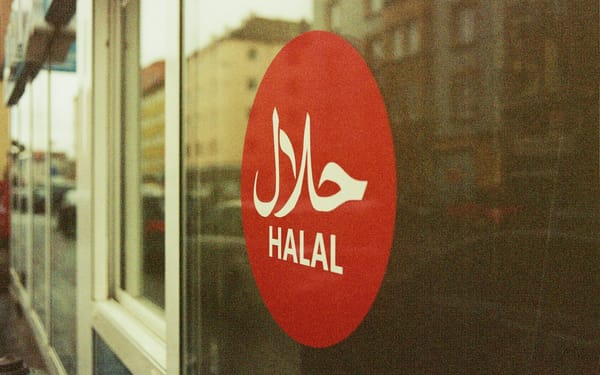Conventional Banking vs Islamic Banking

Banking is an essential aspect of our daily lives. We have both Islamic and conventional banking. The two are different in operating policies and procedures. As Muslims, it's easy to fall into traditional banking and forget that there's Islamic banking. The key difference between these banking forms is their regulatory framework. Hence, this article will explore Conventional banking vs. Islamic Banking.
Islamic banking operates under the Shari'a laws, unlike the conventional system. The conventional system can impose interest and participate in trading haram items like Alcohol and pork or engage in gambling activities. Thus, there's a need to check through both banking systems and understand why Islamic banking should be your choice.
What is Islamic Banking?
Islamic banking is also called Shariah-compliant finance, and it involves all financial activities that follow the Shariah (Islamic law). The principles of Islamic banking are the prohibition of collecting and paying interest and sharing of profit and losses.
Islamic banking is deemed an ethical way of managing finances as opposed to the conventional banking system.
Types of Islamic Finance
1. Murabaha
Murabaha is a type of contract between a client and the bank where the bank purchases goods on behalf of the client. The client makes a deferred payment that covers the cost and promises a profit margin for the bank.
The bank then transfers the full ownership of the goods to the client after completing the payments.
2. Ijarah
Ijarah is a type of Islamic Finance, which is a lease contract. The bank buys goods or property and leases it to the client. The client then pays rent to the bank. Also, the bank can invest in the business and get a share of the profit. The ownership of the property is passed on to the client either during the time of payment or at the end of it.
3. Istisnaa
Istisnaa is similar to regular financing. The features are also identical to Murabaha, except that the client can use the property bought by the bank on the completion of payment. The bank gets a share of the client's profits, too.
4. Mudarabah
Mudarabah is a type of contract in Islamic financing between investors and the bank. It involves investors approaching the bank and sharing their investment plans.
The bank reviews the bank and verifies if it's compatible with the Shariah law. Also, the bank funds the project when it's approved and shares the profit with the investor. The profit is paid to the bank at a Mudarabah fee.
5. Musharaka
Musharaka is a finance contract that involves the bank signing an agreement to participate in a venture with its client. They raise the capital together and work as partners. Then, the bank and clients share the profits and losses according to the pre-approved proportions
6. Tawarooq
Tawarooq is an Islamic Finance contract between the back and the client. It involves approaching the bank to make a purchase and biting the property from the bank. After that, the client uses the property and sells it back to the bank. The bank sells the property back to the original seller.
What is Conventional Banking?
Conventional banking is a method of banking involving taking deposits from individuals and businesses and offering loans to those who are in need. It's a type of system that allows individuals to put their money in a bank where it sits and earns interest.
Types of Conventional Banking
1. Investment Banks
Investment banks are banks that are responsible for underwriting securities and facilitating capital markets, e.g., mergers.
2. Private Banks
These are banks that offer wealth management to high-income clients. They provide estate planning services and customized investment advice.
3. Cooperative banks
Cooperative banks are owned by members who are clients of the bank employees. They're structured differently from retail banks, and they have different priorities.
4. Commercial banks
These are banks that offer services to businesses and individuals. Their offer includes loans, deposits, credits, and other financing services. Commercial banks can also provide financial management services like cash and foreign exchange management.
5. Retail Banks
Retail banks provide services to small businesses and individuals. The services include credit cards, loans, checking accounts, savings, and other financial products.
Differences Between Conventional Banking vs. Islamic Banking
1. Approach to money
Conventional banks see money as a medium of exchange, a store of value, and can trade money at a price higher than the face value. They can also give out loans and receive interest, which are impermissible in Islam.
Islamic banking, however, views meaning as a medium of exchange and isn't involved in using it for haram activities like gambling and interest-based loans. Islamic banking instead offers profits and loss which are based on risk sharing and mutual profits.
2. The Shari'a laws
Islamic banking follows the Sharia law and the teachings of the Quran, while conventional banking follows widely accepted economic and financial theories focused on maximizing profits.
3. Ethical aspect
Islamic banking is culturally and ethically focused, while conventional banking is mostly economically focused and can be unethical.
4. Revenue
Conventional banks have several sources of revenue like interest on loans, Investment, foreign exchange, commissions, etc. Whereas, Islamic banks earn revenue via equity participation and profit sharing.
5. Interest
The collection of interest (Riba) is prohibited in Islam, but conventional banks receive interest on loans and Investment.
Why You should choose Islamic Banking over Conventional banking
As seen above, using Islamic banks will expose you to more lucrative ways of making money. It's a good way of obeying Allah (SWT) and also setting up the best halal lifestyle for yourself. Conventional banking won't expose you to their illegal dealings, which can be a sin for you. Hence, it's better to stick to the various Islamic banks you can find in the US.
Bottom Line
Conventional banking vs. Islamic Banking is a topic that needs to be ironed out. Many Muslims shy away from using Islamic banks, maybe to avoid being too religious or being comfortable with conventional banks.
However, it's paramount to remember that you serve Allah(SWT), and it's your duty to obey Him. We've explored Islamic banking vs. conventional banking in this article, so check through to learn more.





